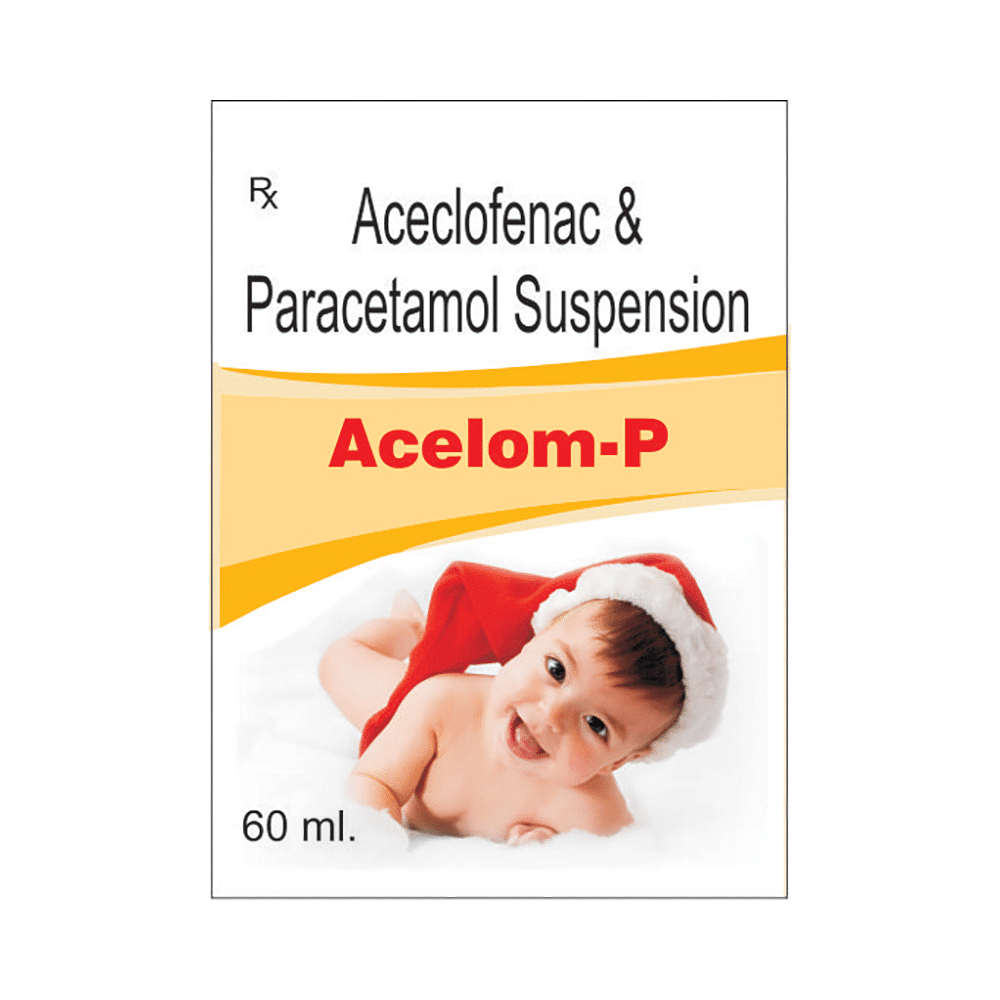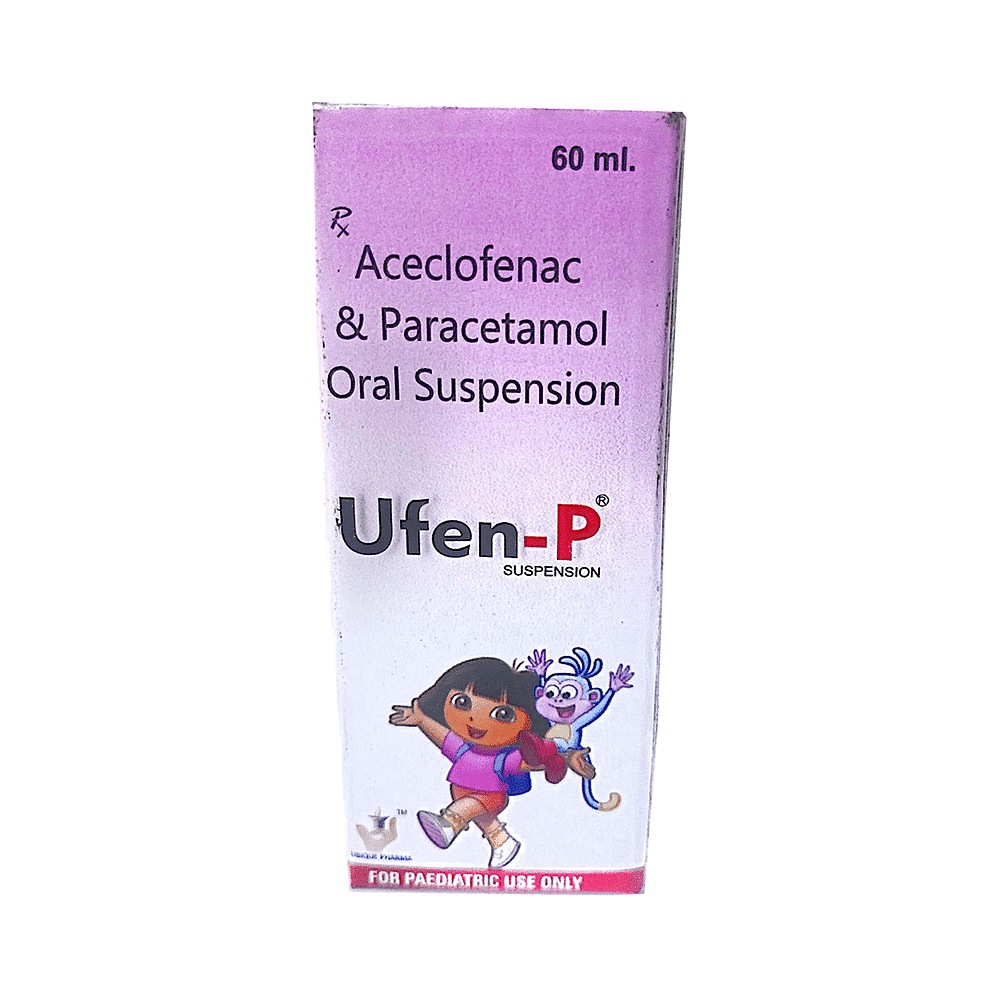
Aclopride P Oral Suspension
Manufacturer
Innovative Pharmaceuticals
Salt Composition
Aceclofenac (50mg/5ml) + Paracetamol (125mg/5ml)
Key Information
Short Description
Aclopride P Oral Suspension helps lower body temperature (fever) and reduce pain and inflammation (redness and swelling) both in infants and children.
Dosage Form
Oral Suspension
Introduction
Aclopride P Oral Suspension is a medication that helps to lower body temperature (fever) and reduce pain and inflammation (redness and swelling) in infants and children. It is available in the form of an oral suspension.
Directions for Use
Give this medicine after food to avoid abdominal discomfort in your child. Maintain a log of your child's temperature. If you do not see any improvement, contact your child's doctor for advice. Keep a track of the dose and the frequency in which you have given this medicine to your child. This will help prevent overdosing.
How it works
Aclopride P Oral Suspension comprises two active ingredients: Aceclofenac and Paracetamol. These medicines work by blocking the action of chemical messengers responsible for pain, fever, and inflammation (redness and swelling).
Quick Tips
Give plenty of fluids to your child to ensure proper body hydration (water-levels) Give your child a balanced diet Encourage your child to have optimum sleep since sick children get tired soon and getting plenty of rest helps them recover faster. Stop the medicine and consult your child's doctor in case your child exhibits allergic rash or stomach pain soon after taking this medicine.
Related Medicines

Acedel-P Oral Suspension

Aclozest-P Oral Suspension

Aceliek-P Oral Suspension

Nacsafe P Oral Suspension

Volmol P Oral Suspension

Acelom-P Oral Suspension

Acegrot Oral Suspension

Belofen-P Oral Suspension

Ufen-P Oral Suspension

Olynac P Oral Suspension
Frequently asked questions
Can I increase or decrease the dose of Aclopride P Oral Suspension for my child based on the severity of their illness?
No, it is not recommended to alter the dosage without consulting a doctor. While increasing the dose without proper judgment may lead to toxicity, decreasing it may cause recurrence of symptoms. Therefore, always seek guidance from your child's physician if you feel a change in dosage may be necessary.
How much Aclopride P Oral Suspension should I give to my child?
Your doctor will prescribe the appropriate dose based on your child’s condition and body weight. Following the prescribed dosing schedule is crucial for ensuring safe and complete recovery.
How should Aclopride P Oral Suspension be stored?
Aclopride P Oral Suspension should be stored at room temperature in a dry, well-ventilated area away from direct sunlight or heat. It is essential to keep all medications out of reach and sight of children to prevent accidental ingestion.
Can all children receive the same dose of Aclopride P Oral Suspension?
No, each child's needs may vary. The doctor will determine the appropriate dose based on your child’s age and body weight. Dosage adjustments are necessary for children as they grow, so consulting with a doctor is crucial.
When will my child feel better?
The duration of recovery using Aclopride P Oral Suspension varies depending on the severity of the illness. You may need to administer it for several days or weeks. Always follow your doctor’s instructions for the correct dosage and frequency to alleviate symptoms and help your child recover.
Are there any serious side effects associated with this medicine?
Although Aclopride P Oral Suspension is generally well-tolerated in children, if you notice any severe or persistent adverse reactions like vomiting that doesn't subside, swelling of the body or face, decreased urine output, or a sudden allergic reaction, consult your doctor immediately.
Are there any specific contraindications associated with the use of Aclopride P Oral Suspension?
Aclopride P Oral Suspension is contraindicated in patients with known allergies to any components or excipients of the medication or those with known sensitivity to other painkillers (NSAIDs). Avoid its use in individuals with a history of stomach ulcers or active, recurrent stomach ulcer/bleeding. Additionally, it should be avoided in patients with heart failure, high blood pressure, and liver or kidney disease.


